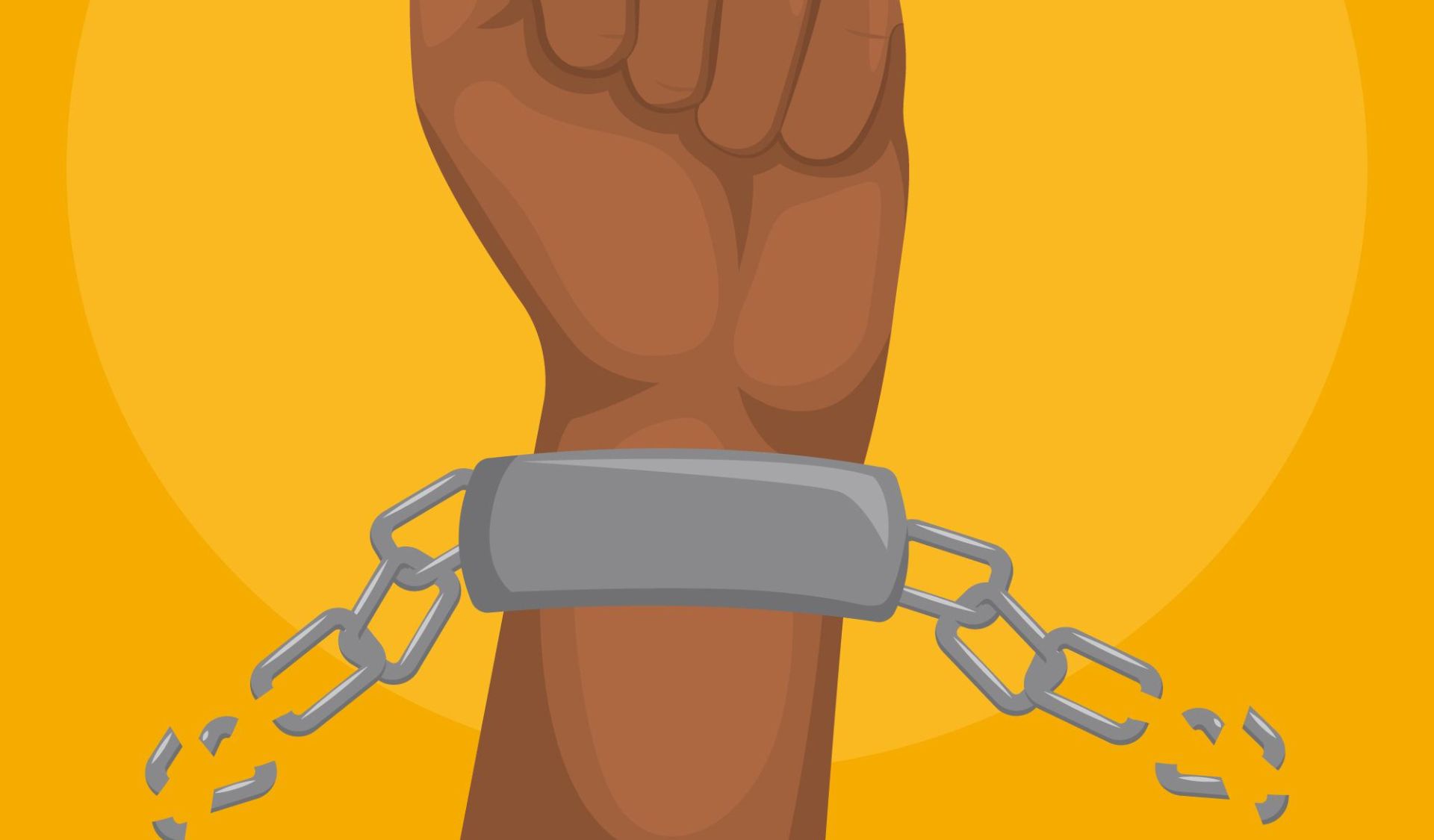I have never been to prison and I don’t want to go there. I don’t think anyone truly wants to go there, and almost everyone who is there does not want to stay there. It is not normal for a human being to want to be locked up behind bars. It goes against our nature. Imprisonment limits what a person can do; their freedom is restricted. Thankfully the majority of the population does not wind up in prison but there are many people today who feel restricted or weighed down. They are not in physical prisons but their “incarceration” is no less real. This is true of both unbelievers and believers.
There are a number of things that can cause a person to feel weighed down or contained. In this article I will focus on three: bondage, fear and condemnation. I am certainly not the first to recognise and write about these issues, but I will share some thoughts about them here.
Though these issues have some differences, they also have some things in common. First, they are all mentioned in the Bible. This indicates that they are problems that can impact the human race. Many people will deal with one or more of them during the course of their lives. Second, each of them can have a negative impact on the individual. In some measure they weigh a person down and keep them from functioning at full capacity. Third, and this is the best point: Jesus can provide freedom to all who are troubled by any of these issues. We will take a brief look at each issue.
There are a number of things that can cause a person to feel weighed down or contained… will focus on three: bondage, fear and condemnation.
The Lord has clearly demonstrated in Scripture that He is very good at setting people free, He did it quite regularly. On occasion He engineered some prison breaks. In Acts 12 we read that King Herod had the apostle Peter put in prison. Even though he was guarded and chained (Acts 12:10, 7), he escaped. The church prayed for him (Acts 12:5) and the Lord sent an angel who led Peter out of prison (Acts 12:7–10). In Acts 16 we find another account, in this one Paul and Silas were put in prison. This happened because they had interfered with the economics of the owners of a slave girl. The girl had a spirit that enabled her to foretell the future (Acts 16:16). When Paul cast the spirit out of the girl she could no longer do this. This enraged her owners so they brought the two missionaries before the magistrates and had them imprisoned (Acts 16:19–24). They prayed and worshipped the Lord in prison (Acts 16:25) and the Lord sent an earthquake, which opened the prison doors for them (Acts 16:26). In both of these examples, the Lord released His servants from being physically constrained behind bars, but He can also set free those who are afflicted spiritually.
Bondage can be a problem. One example of deliverance from spiritual bondage can be found in Luke 13. In this chapter, Jesus ministered to a woman that He described as a “daughter of Abraham” (Luke 13:16 NIV). She had been crippled for eighteen years; she could not stand up straight (Luke 13:11). From what Jesus said it is clear that while the woman’s problem impacted her physically, the source of it was not physical but spiritual, Satan had done this to her (Luke 13:16). The enemy had succeeded in keeping her bound for a very long time, but once she met Jesus, the enemy had to release his victim. Not everyone who suffers physically is bound by Satan but in this case that was the issue.
The Lord has clearly demonstrated in Scripture that He is very good at setting people free. He did it quite regularly. On occasion He engineered some prison breaks
Fear can also be a problem. Before proceeding I need to state clearly that there are different kinds of fear. For example, the Bible tells us to fear God (Prov 3:7), so that is a good fear. However, there are other fears that are not good, they can be detrimental to a person’s wellbeing. Respect for those in authority is encouraged (1 Pet 2:13–14) but there is a fear of human beings that can be problematic (Prov 29:25). Fear of the unknown (Matt 6:34) and perhaps especially of death (Heb 2:15) can be very debilitating. Jesus can liberate a person from all unhealthy fears. His sacrifice provides us with peace with God (Rom 5:1). His power allows believers to stand in the face of the opposition of others. We see this a number of times in the lives of the early believers, Acts chapters 4 and 7 are examples. And ultimately Jesus takes the fear out of death because the believer knows where he or she will go after they die.
The last issue I will mention is condemnation. This can come from a number of different sources. In John 8, the passage dealing with the woman caught in adultery, the context makes it clear that she was condemned by the crowd who was there. So other people can be a source of condemnation. In his first letter the apostle John wrote about our hearts condemning us (1 John 3:20). So it is possible that we can condemn ourselves. And in addition to the condemnation that can come from human beings we may also experience it from another source. The devil accuses or condemns God’s people, Revelation 12:10 says he speaks ill of us to God “day and night” (NIV). If you have been a believer for any length of time you have probably heard him whisper some accusations to you as well. In each of these cases Jesus is the one who can liberate from condemnation. His sacrifice, love, and grace can free the most-needy soul.
We sometimes have difficulty handling the issues that plague us. But there is one who is stronger than we are and He can do it. His name is Jesus, He is the liberator. When He spoke in the synagogue at Nazareth in Luke 4 he read from the book of Isaiah the prophet. In the passage He read, it said, “He has sent me to proclaim freedom for the prisoners” it also said “to set the oppressed free” (Luke 4:18 NIV). Jesus did just that in His earthy ministry as recorded in the Gospels. The good news is He can still do it today because He remains forever the same (Heb 13:8)! If you find yourself in need, go to Him.





